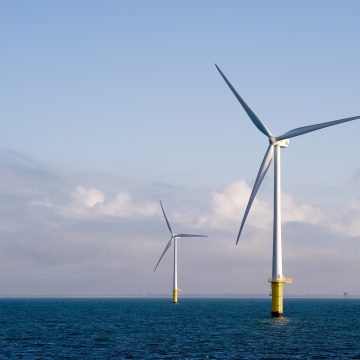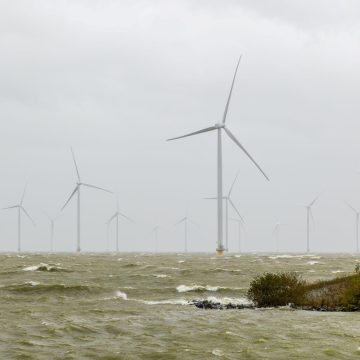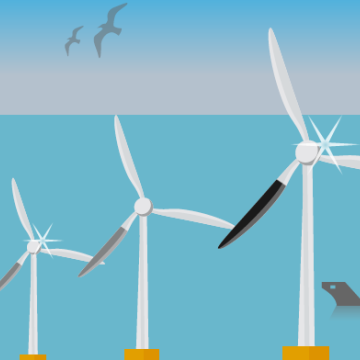Researching the ecological impact of offshore wind farms in the North Sea
How do wind farms affect the North Sea ecosystem? The new research project NO-REGRETS aims to answer this question. Deltares is one of the key partners in this five-year project, which has received €6.7 million in funding from the Netherlands Organisation for Scientific Research (NWO).

Together with partners such as the Royal Netherlands Institute for Sea Research (NIOZ) and Wageningen University, the North Sea Renewable Energy: Gaining the Required Ecological Knowledge for the Transition (NO-REGRETS) project investigates the impact of the energy transition on the vulnerable North Sea ecosystem, with a particular focus on wind turbine effects. Key topics include fish stocks, hydrodynamics, primary production of phytoplankton, and the ecological processes influenced by offshore wind farms.
“The NO-REGRETS project offers a unique opportunity to better understand how the development of wind farms impacts the North Sea ecosystem,” says Luca van Duren, marine ecology expert at Deltares. “The insights gained here will complement our ongoing research into ecosystem effects, such as within the Offshore Wind Ecological Programme (Wozep).”
The NO-REGRETS project offers a unique opportunity to better understand how the development of wind farms impacts the North Sea ecosystem,” says Luca van Duren, marine ecology expert at Deltares. “The insights gained here will complement our ongoing research into ecosystem effects, such as within the Offshore Wind Ecological Programme (Wozep).
Luca van Duren, marine ecology expert at Deltares
Deltares' role
Deltares investigates how wind farms affect the North Sea ecosystem. Our role includes integrating modelling studies and field measurements to accurately analyse and predict the impacts of wind farms and climate change on the North Sea ecosystem.Our research focuses on modelling hydrodynamics and simulating the dispersion of sediment in the sea. Additionally, we explore how the growth of phytoplankton and changes in benthic food webs—the food chains on the seabed, where organisms like shellfish and worms form the foundation of the ecosystem—are influenced by wind turbine foundations and climate change.Deltares also collaborates with TU Delft to supervise a PhD student researching the effects of offshore wind farms and climate change on large-scale hydrodynamic phenomena. This includes investigating ecologically significant areas, such as the Frisian Front and Rhine ROFI (Region of Freshwater Influence), and understanding how these dynamics influence the marine ecosystem.
Future-proof choices
The NO-REGRETS project is vital for sectors such as fisheries, which depend on a healthy North Sea ecosystem and sufficient operational space. The research provides insights that contribute to sustainable planning of the North Sea, balancing nature, wind energy, and economic activities.
Over the next five years, the project will examine various ecological processes, including the impact of wind turbines on fish stocks and productivity. This knowledge will support policymakers and stakeholders in designing the North Sea in a way that accommodates both ecological conservation and economic activities responsibly.




